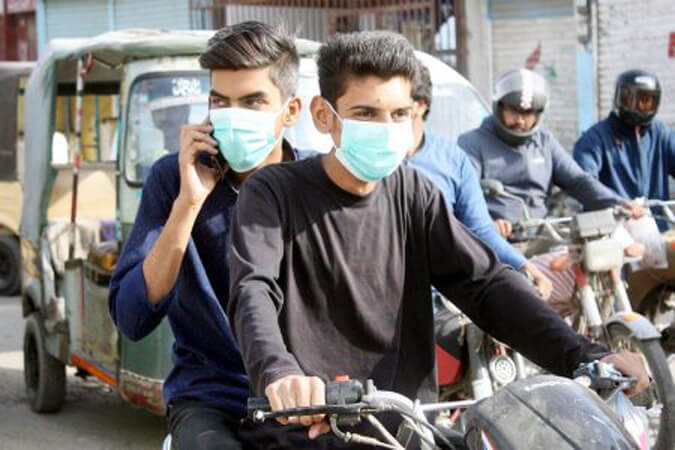ISLAMABAD: While the number of COVID-19 cases in the country has risen to nearly 11,000, with 742 new cases arising over the past 24 hours, the National Command and Operation Center (NCOC) reported on Thursday that 79% of these cases were triggered by local transmission of novel coronavirus.
Since the nature of the infection has undergone this transition, the government has agreed to implement a monitoring and trace program in which people can begin random testing in a few days’ time.
It was reported that nearly 90pc patients were travelers from foreign countries during the first week of the current month and that there were fewer cases caused by local virus transmission. However, fresh data shows that in international travelers only 21pc cases were registered.
Maj Gen Prof Aamer Ikram, Executive Director of the National Institute of Health, during a conversation with Dawn, said that as the whole situation had changed due to local transmission, it was agreed to change the policy to resolve the problem.
“Earlier most of the cases were being reported in those people who were coming from abroad and even cases of local transmission were being reported among those who had come into contact with foreign travelers. However now a majority of cases are being attributed to local transmission of the virus,” he said.
Prof Ikram said it would implement a track and trace program in which random testing of people will begin in a few days.
“Our testing capacity has been increased due to which now we are in a position to start random testing in residential and industrial areas. In a few days, our teams will start visiting communities to seek information about the people having cough or other symptoms of COVID-19. Because of surveillance we will be in a position to pick cases and if a person is found positive for the virus, we will test all residents of his/her house,” he said.
When asked why suspicious patients were told to go to the hospital and have them checked, Prof. Ikram said it was a real problem because there was a need to limit suspect mobility.
“We are trying to introduce a mechanism under which all suspects will have to stay at their houses and healthcare providers will approach them to get the sample for testing,” he said.
He said limiting suspects’ mobility would reduce the chances of disease transmission.
124,549 tests have been carried out since the first case was registered in Pakistan, according to the NCOC data. Across the country, as many as 2,337 patients have recovered, but about 60 are in critical condition.
Meanwhile, 717 hospitals offered to care for people suffering from COVID-19 and 2,779 patients were admitted to hospitals.


























Leave a Reply